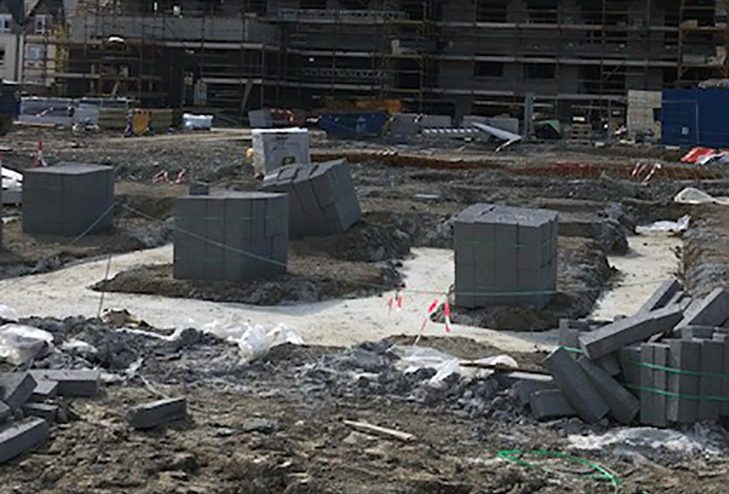
Any future Government will require a thriving and dynamic construction industry to deliver any promises made during the election. The reality is that the Irish society needs the construction industry to deliver 35,000 housing units annually. Our capital cities and regional communities require Irish construction companies to deliver over €116billion in infrastructure to drive economic growth.
However, there remain significant barriers that are reducing our ability to deliver the houses, roads, rails, schools, hospitals and built environment that will shape Irish people’s communities, careers and quality of life for the next 50 years. If political parties in the next Government, do not remove these barriers; Ireland will not reach its potential.
Put first-time buyers into houses: Introduce State-Backed Shared Equity Scheme
Introduce a shared equity scheme, in conjunction with the Help to Buy, will enable the average couple to secure a mortgage. Increasing the number of first-time buyers with mortgages will have the knock-on effect of increasing development finance thus enabling more house-building.
Adjust planning density requirements to allow affordable quality housing that people want
Housebuilders can’t secure finance to deliver houses and apartments that meet planning density guidelines particularly outside Dublin. To meet a minimum of 35 units per hectare homebuilders would have to build more apartments that are too costly and not in demand outside Dublin. Introducing flexibility on a regional or market basis would allow regional homebuilders to secure finance to build much needed homes around the country.
Enable the construction of affordable housing by reducing Government-related costs
Over 55% of the cost of delivering a house relates to taxation, levies, land costs, finance costs and engaging with utilities. Reducing these costs will enable homebuilders to secure finance so they can build more affordable homes for people. More supply will reduce pressure on social housing lists, homelessness, rents and Government payments such as HAP.
Building houses where population is growing
Project Ireland 2040 aims to grow towns, villages and communities by ensuring housing and infrastructure are put in place. County Councils are being instructed to restrict land zoned residential that could support thousands of homes in areas with growing populations. County Development Plans must where appropriate retain current zoning status on existing lands for the next five years.
Invest in infrastructure to connect Ireland’s regions
The next Government must maintain the budget allocation for the National Development Plan and ensure regional projects are prioritised. Maintaining a solid regional pipeline of public capital investment is the only way to counter-balance the Irish economy’s over-dependence on Dublin (circa 50% of GDP is generated in the capital.)
Make Public Sector Procurement work
Adopt international best practice so public sector procurement no longer operates on a lowest-price basis. Most immediately, the next Government must finance the forward planning and procurement work for strategic infrastructure projects identified in the NDP particularly in the regions. Drive the uptake of Early Contractor Involvement across the Government’s bodies to improve planning and design of public sector projects to deliver better outcomes for the State and the citizen.
Streamline Planning for Critical infrastructure
The planning system has a huge impact on the timelines for the delivery of infrastructure and adds huge cost that the Exchequer must absorb. Planning needs to be as efficient as possible whilst maintaining the principle of allowing people to exercise their rights. Proposed legislation to streamlining the planning procedures in relation to Strategic Infrastructure Project Developments must be completed by the incoming Government.
Roll-out national deep retrofit programme
The climate action plan sets a target of retrofitting 500,000 Irish homes across the nation. The roll-out of a robust grant system will drive consumer demand for retro-fit. This could generate thousands of jobs generated in addition to achieving climate action goals. The industry will require support to hire and train employees in new retrofit activity and to invest in new technology.
Make construction part of the circular economy
Allow the construction industry to become part of the circular economy. Currently the industry is curtailed from reusing construction by-product and demolition waste. The next Government must provide resources to its agencies to enable reuse of suitable material in the construction process rather than forcing industry to use landfill facilitates where it is not required.
Building People
Attracting people into construction
The Government will require an additional 100,000 people to join the construction workforce in the coming years. The industry is embarking on an ambitious programme to attract young people into the industry over the next decade. Government should divert funding from the unused National Training Fund to support these initiatives as it has done for the technology, agri-food and hospitality sectors.
Creating more apprenticeships
Apprentices are essential to the creation of a dynamic and sustainable construction industry. However, SMEs in construction are unable to invest in apprentices after a decade of recession. The next Government should reintroduce the payment of apprenticeship fees so companies can take on young people under this scheme again.
Digital Construction
Digital construction can save the Exchequer 20% on public infrastructure projects, reduce delays by 20% and increase construction exports by 20%. Establishing a digital Centre of Excellence will help SMEs adopt digital construction and improve the industry’s efficiency overall.
Invest in construction related R&D and Innovation
The Government should introduce a simplified R&D tax credit scheme for SMEs allowing smaller firms to develop innovative practices. State agencies should execute a campaign to promote available support to SMEs to drive innovation.